A few weeks in the past Intel released a new series of ninth-era H-series processors for gaming and excessive-overall performance laptops, meaning we're going to get to see a number of those within the latest models as we revisit laptops to see how those new chips stack up.
Read More :- Intel Core i5-8400 (B360) vs. AMD Ryzen 5 1600 (B350)
- Huawei Mate 10 Review
- 2nd-Gen Core i7 vs. 8th-Gen Core i7
Intel’s ultimate couple of product traces have been a bit puzzling, with a couple of code-names and architectures break up throughout distinctive series. Current U-collection chips for ultraportable laptops are nevertheless branded as 8th-gen and are codenamed Whiskey Lake, whilst more recent H-series chips get a bump up to ninth-gen and form a part of Coffee Lake Refresh, the same as modern computing device CPUs.
Most of Intel’s 9th-gen laptop elements aren’t mainly exciting and don’t bring tons to the table. The Core i5s are nonetheless quad middle, 8 thread components and the i7 s are nevertheless six core, 12-thread models. We’re nevertheless on 14nm with some thing quantity of pluses we’re as much as. The iGPU is also the same, in case you care plenty about it on this form of form issue.
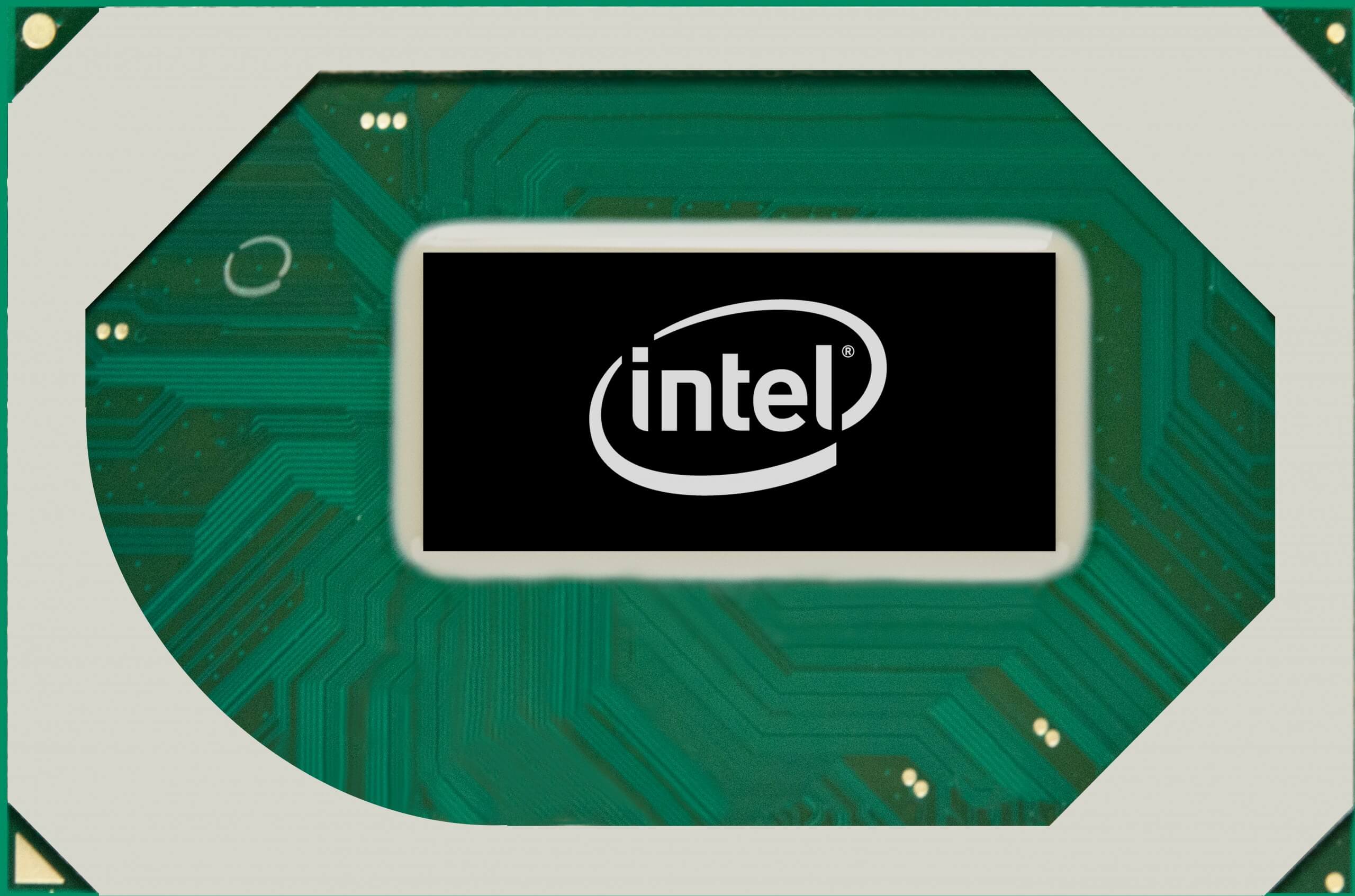
Where the enhancements are coming depends on the CPU. For the Core i5 models, we’re getting very modest clock speed jumps. The 9300H is just a hundred MHz higher for base and increase clock, even as the 9400H doesn’t even get a base clock boom, just an extra a hundred MHz growth to the enhance. L3 cache of 8MB remains the equal.
For the Cores we do get a cache boom from 9MB to 12MB and the 9750H has received the most important clock leap relative to the popular 8750H: it goes from a 2.2 GHz base and four.1 GHz enhance, to a 2.6 GHz base and four.five GHz improve. So that’s a 400 MHz increase throughout the board. The 9850H is more modest once more, without a base clock gaa Boxnd 300 MHz more at the enhance.
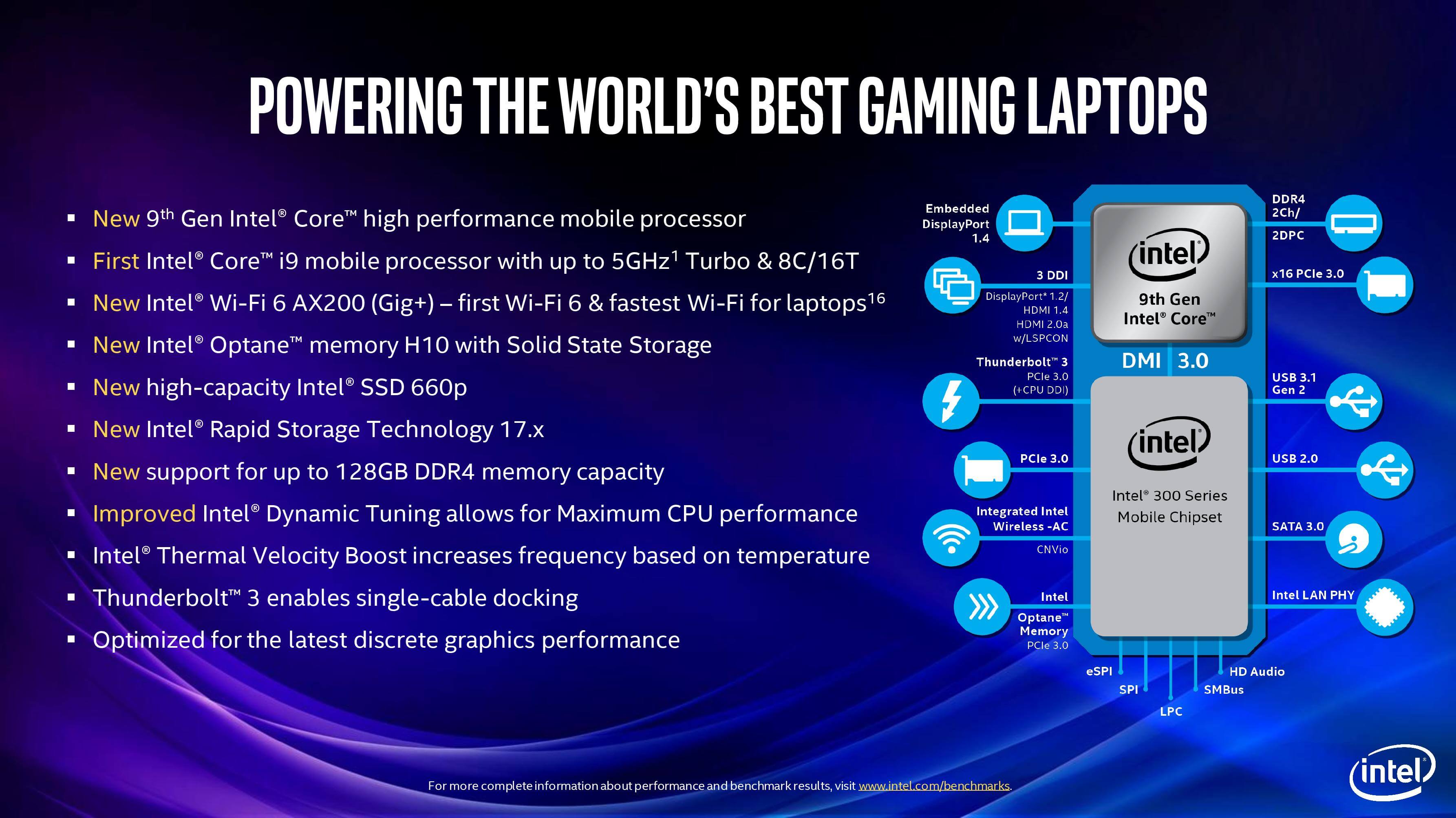
Given the 8750H and now the 9750H are the maximum typically used H-collection processors, particularly for almost all of gaming notebooks, we do discover those specification breakdowns thrilling. The 9750H sits plenty closer to the 9850H than the corresponding 8th-gen parts, and the 9750H is the only chip to get 10-20% percent clock will increase. It seems like Intel has centered profits for this CPU in particular, knowing how popular it's far, to ensure that at the least some ninth-gen components supply real performance will increase.
With that stated, at the same time as the 9750H has muscled in on the 9850H’s territory, the 9850H gains a brand new feature that’s precise to that processor, which Intel calls Partial Overclocking. This just method OEMs can set up to a five.zero GHz faster frequency in the event that they need to, relying at the tool and its cooling talents.
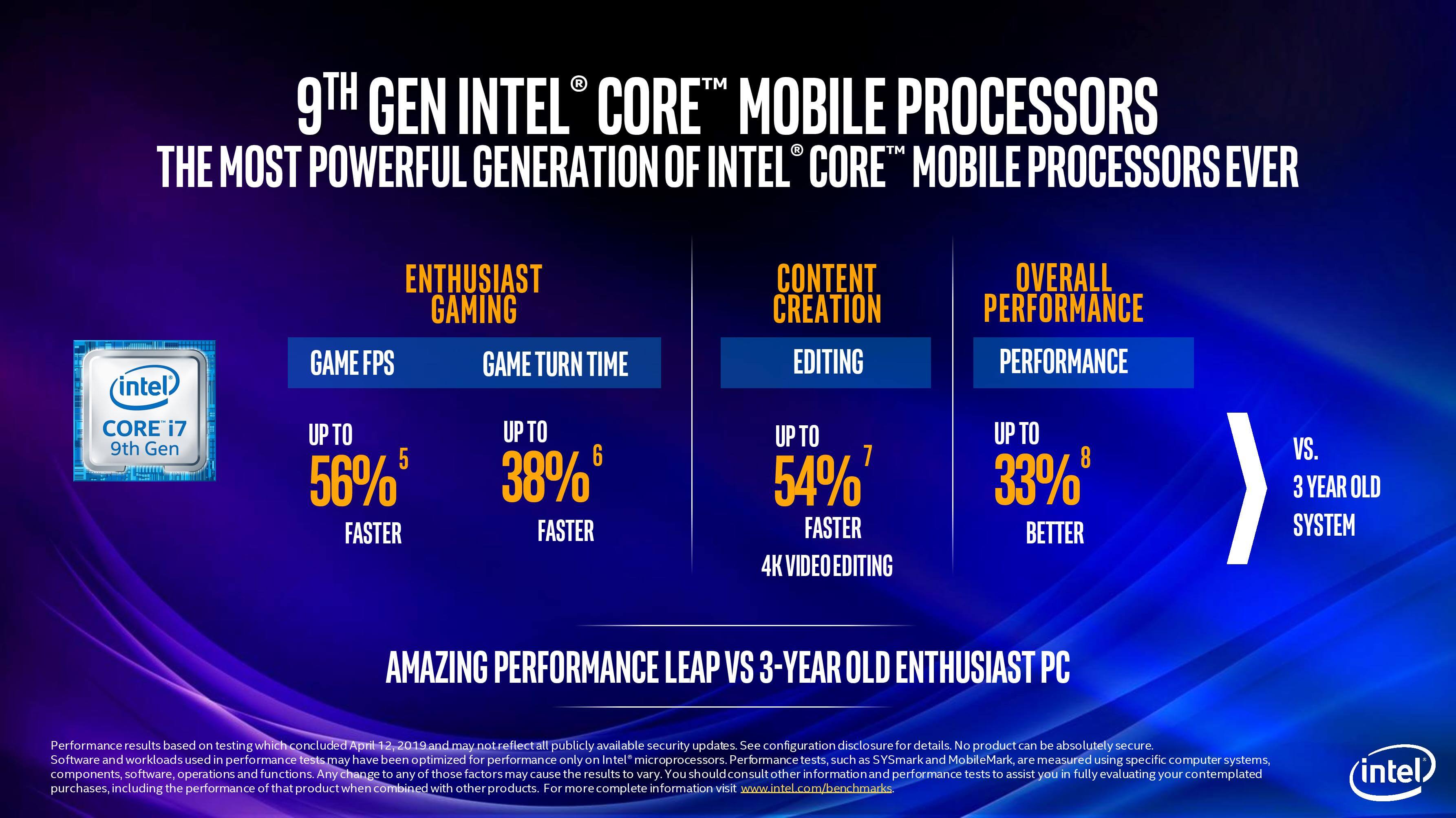
And then of direction are the new Core i9 fashions, which convey eight cores and 16 threads to laptops to fit pinnacle Core i9 laptop fashions. The i9-9980HK can even reach 5.0 GHz, like the 9900K, withBox + 45W TDP. These 8-middle Core i9s replace the unmarried eighth-gen Core i9, which was nevertheless a six middle component with higher clocks.
While it's far exciting to look eight-core CPUs come to laptops + Core claimed 45W TDP, Intel country they are concentrated on “Musclebooks” with those chips. Intel simply made up Musclebooks as a product category but basically they confer with those outstanding chunky beastly gaming laptops and similarly hefty workstations fashions that come with a massive fee sticky label. This leaves the Core i9 as extra of a gap CPU instead of an eight-middle computer CPU reachable to all.
Intel Coffee Lake H-Series i7 Line-up

The attention of this evaluation is on the Core-9750H which is the brand new mainstream H-collection computer CPU with a view to be visible in lots of gaming laptops moving forward. Specifically we want to test out the difference among the 9750H and the 8750H which will be a drop-in alternative or upgrade for same pc models. With the staggered releases among Nvidia on the GPU facet, and Intel on the CPU aspect, many laptops are available with the same GPU inner but a desire among the 9750H or 8750H.
We can count on this isn’t quite just like the bounce from the Core i7-7700HQ to the i7-8750H wherein we went from four cores to six cores, so performance profits have to be extra modest.
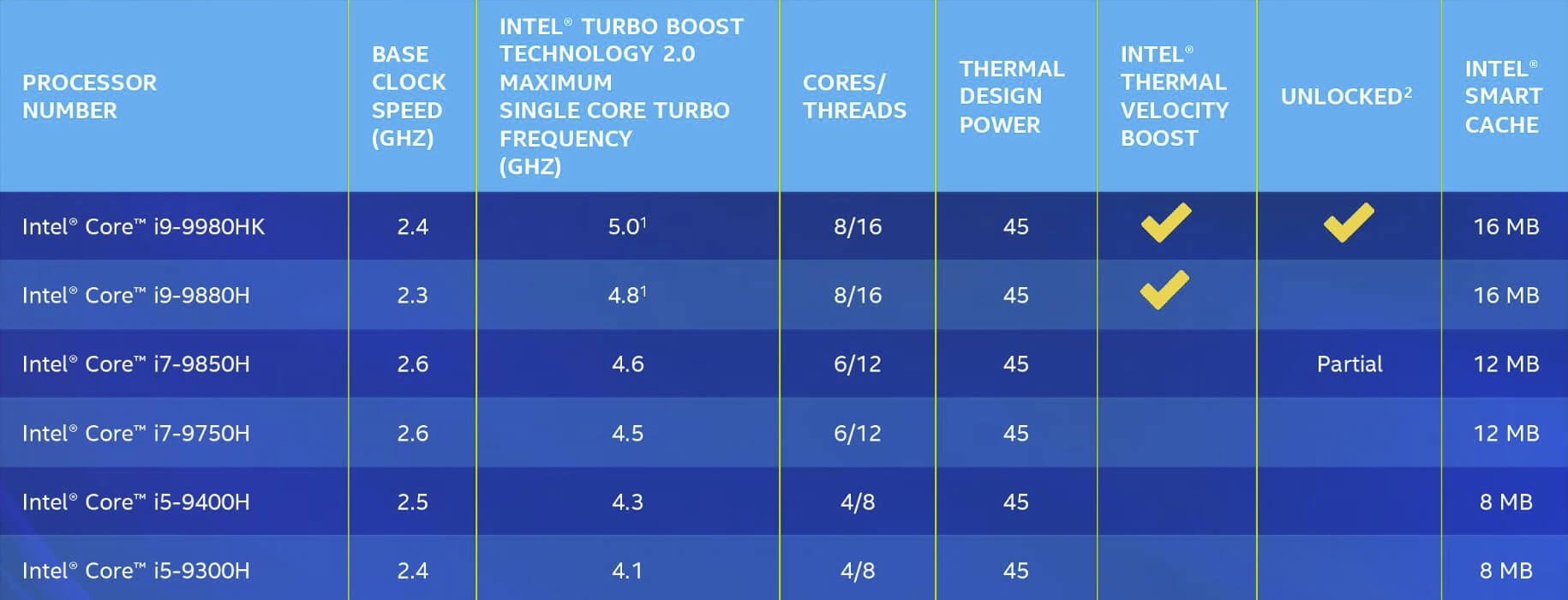
A very last phrase at the spec front earlier than digging into a few performance stuff, Intel does listing the maximum Turbo clock for the 9750H at four.5 GHz, even though this most effective applies to a unmarried core. With two cores active it drops to four.four GHz, then it follows down in a hundred MHz increments for every extra energetic center, down to four.0 GHz for six cores.
This differs again from the 8750H, which permits four.1 GHz on up to 2 cores, 4.0 GHz on up to four cores, then 3.nine GHz on six cores. So when the 9750H is absolutely utilized on six cores, its most rapid clock does turn out to be only a hundred MHz better than 8750H. Something to preserve in thoughts and suggests that an excellent portion of Intel’s upgrades have focused unmarried or low middle be counted usage.
Performance
For testing the Core i7-9750H we obtained two laptops from Gigabyte and MSI. The Gigabyte version is the Aorus 15, which also features a new 240 Hz show but is a little at the loud facet with a fairly demanding cooler noise profile. The 2nd device is the MSI GE75 Raider, a larger 17-inch computer. Both occupy that type of mid-size, mid-tier alternative within the market, so it’s great and fresh now not to test a cooling-limiting slender and mild the primary time around.
Both laptops come prepared with GeForce RTX 2070 computer GPUs, the overall pc variation no longer Max-Q. We’re also getting 16GB of twin-channel DDR4-2666 that's the most velocity the 9750H helps -- no alternate with these new CPUs in the direction of helping better frequencies. Both have 1080p presentations as properly and rapid NVMe SSDs.
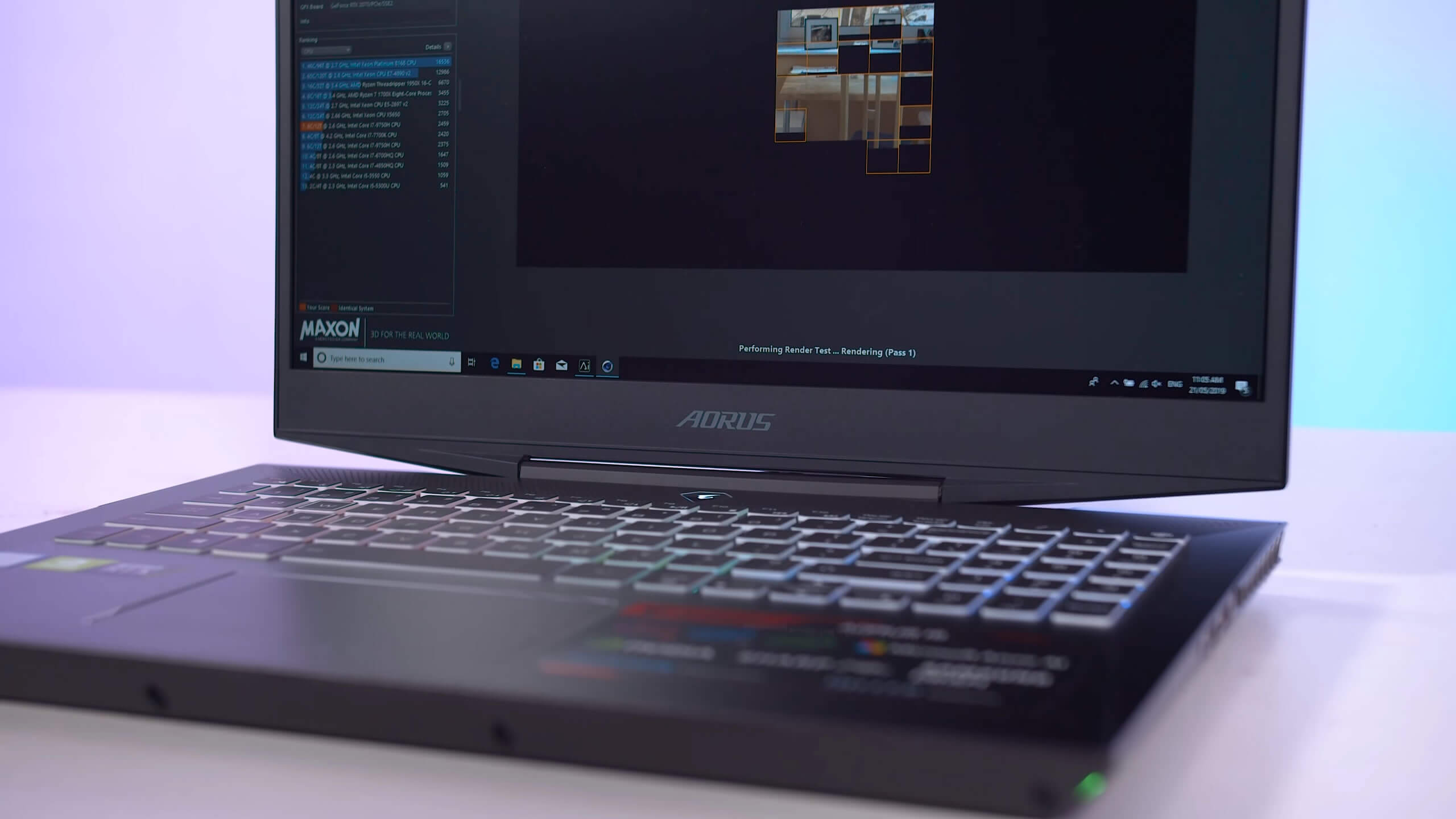
The first factor we want to discover, and this is critical for the relaxation of the overall performance segment, are electricity limits and clock speeds. Laptops are a distinctly confined shape factor so although Intel offers a CPU the option to run at up to four.zero GHz across six cores, strength limits will nearly usually prevent the CPU from truly hitting those clocks in long term workloads, unlike fully unleashed laptop systems.
What we’ve seen over the last few years with Intel’s H-series merchandise is that OEMs generally tend to disregard the real TDP rankings in favor of better PL1 and PL2 limits, which pushes up clock speeds. With quad-core Core i7-7700HQ laptops we normally noticed PL1, or the longer term turbo restrict, sitting around 45W. With the i7-8750H, in lots of laptops that jumped as much as 52W or thereabouts, that is extensively better than the actual 45W TDP, with deadlines removed.
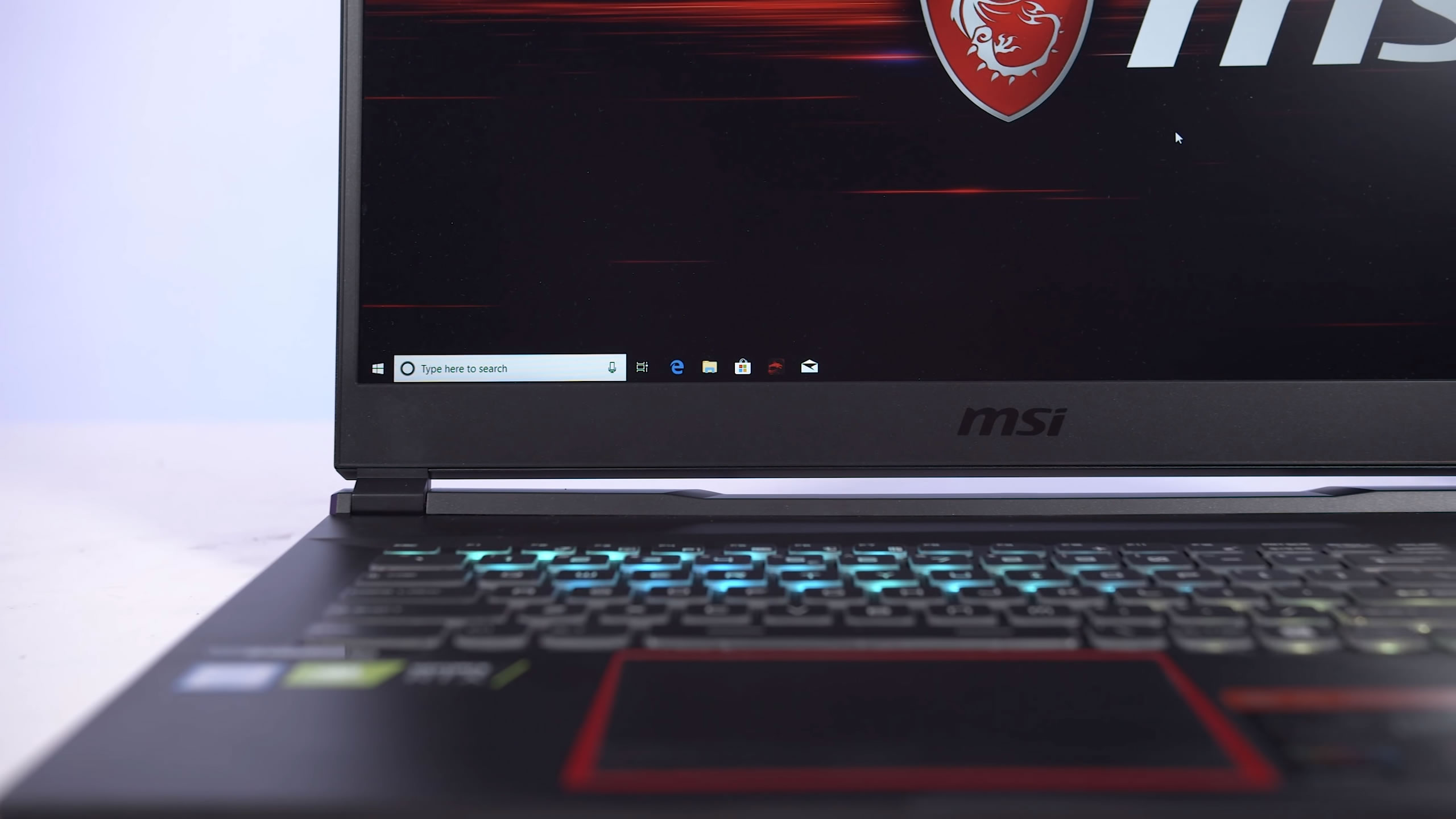
We're not going to get into the entire TDP argument about whether this is in-spec or out of spec behaviour but at the end of the day, OEMs felt they could take care of the brand new six-middle CPUs of their designs with a higher strength limit, and to achieve higher performance they allowed it. And with the i7-9750H we’re once more seeing round a 52W PL2 restrict, even though inside the MSI version it’s a bit higher at round 54W.
PL2 limits have additionally increased a piece to allow the better short term faster frequencies. The i7-9750H take a look at laptops were configured to 80W, in comparison to 70W for the 8750H. But the actual story right here is that PL1 limit: given the 9750H is essentially the identical structure, built at the same manner node with the equal core configuration, we can’t in reality anticipate better actual global clock speeds within the equal energy limit.
Cinebench R20 MT CPU Clock Speed Average

And that’s essentially what we get in phrases of real clock speeds. The Core i7-8750H inside the Gigabyte Aero 15 X9 sits around 3.1 GHz long-time period Core i7-8550U Cinebench R20 run, after to begin with hitting 3.3 GHz. The more moderen Core i7-9750H inside the Gigabyte Aorus 15 sits around three.1 GHz long term i7-8550U Ultraportable Cinebench R20 run, after initially hitting three.three GHz. In different phrases, equal behaviour.

So when we study Cinebench R20 overall performance, lo and behold both structures carry out roughly the equal within the multi-threaded check. The MSI version does clock barely higher and therefore plays slightly higher, but not extensively so. The simple fact is it takes greater than truely increasing clock speeds on paper to achieve a actual-world performance improvement while every other issue of the CPU stays the same, along with its power boundaries. And that is what we’ll see at some point of these overall performance charts.
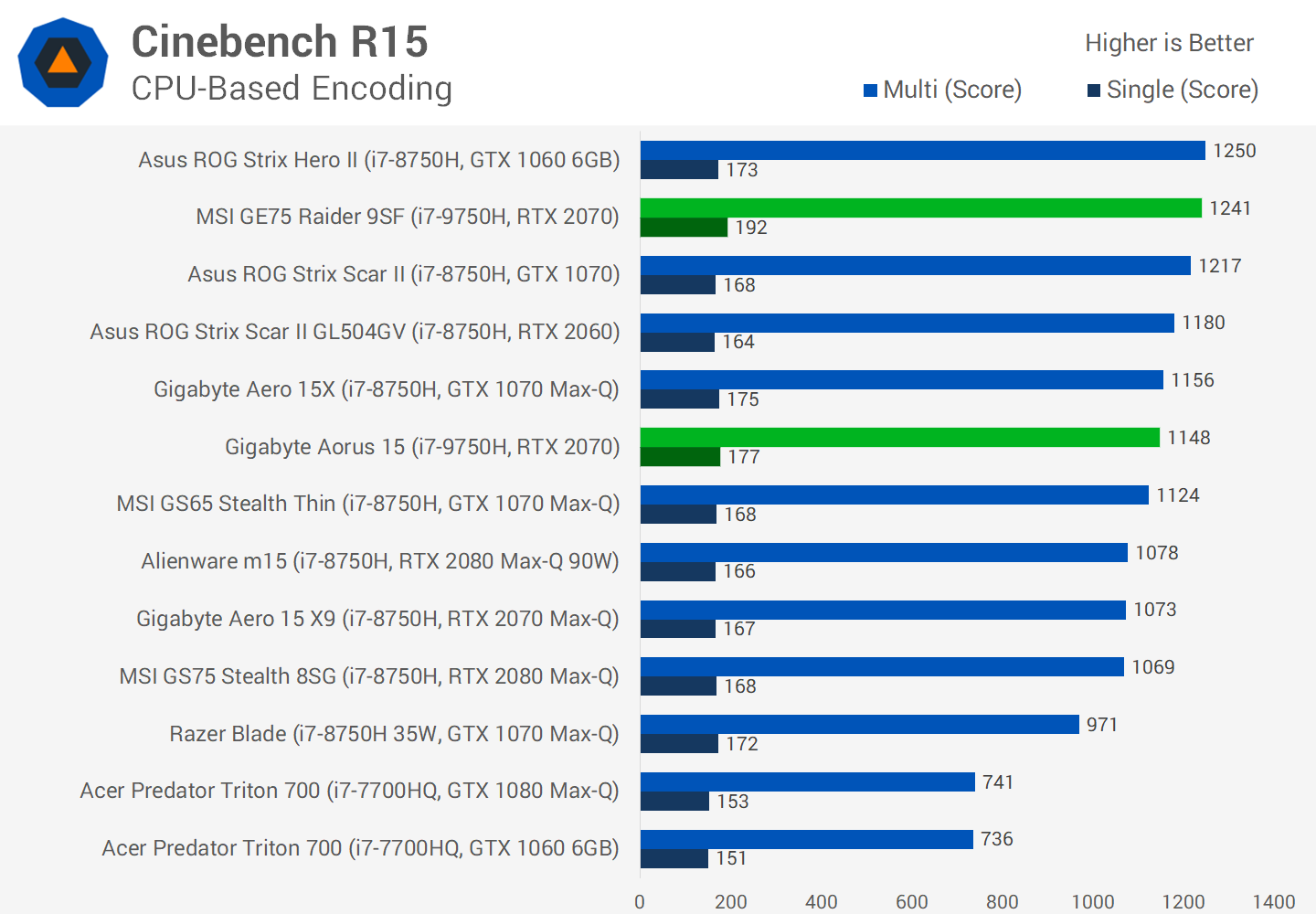
Here’s any other one for Cinebench R15 with a far wider range of structures in the charts. The MSI model performs properly inside the multi-threaded check however it’s now not the quickest device, and gets beaten by means of an Asus computer with the i7-8750H. The Gigabyte version is more middle of the %, it’s now not sluggish, however it’s not anything unique.
It is a little extra beneficial to the MSI model inside the unmarried-threaded take a look at in which it clocks in thirteen% faster than the common Core i7-8750H result. That’s wherein the ones higher unmarried-center clocks coming to play.
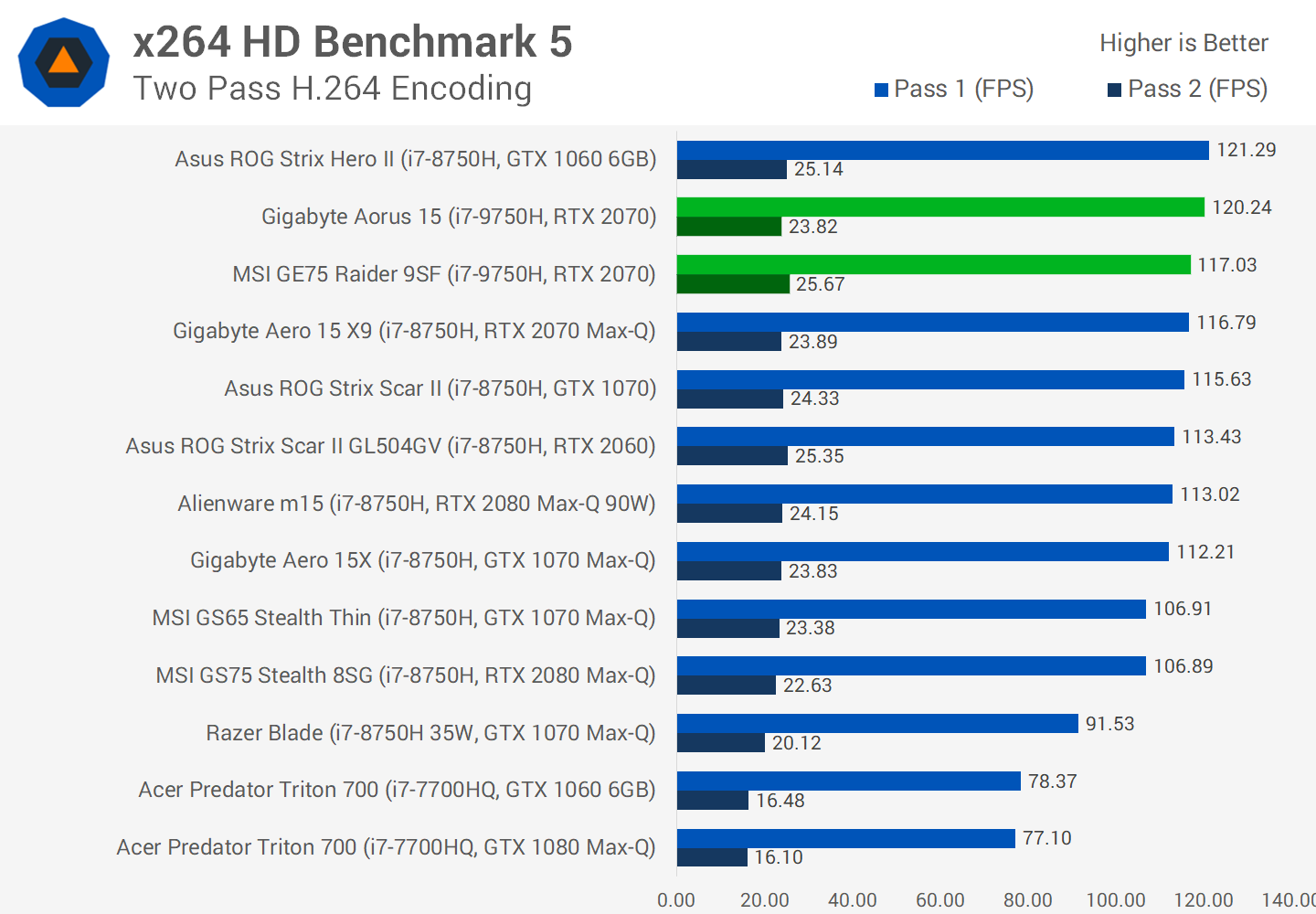
In x264 encoding, the Core i7-9750H laptops carry out nicely in pass 1, but the Gigabyte gadget falls lower back to the % within the 2nd skip. The MSI model is outright fastest however very slightly ahead of the properly-performing Asus fashions, to the tune of 1 percentage. Not precisely the improve a few might need.
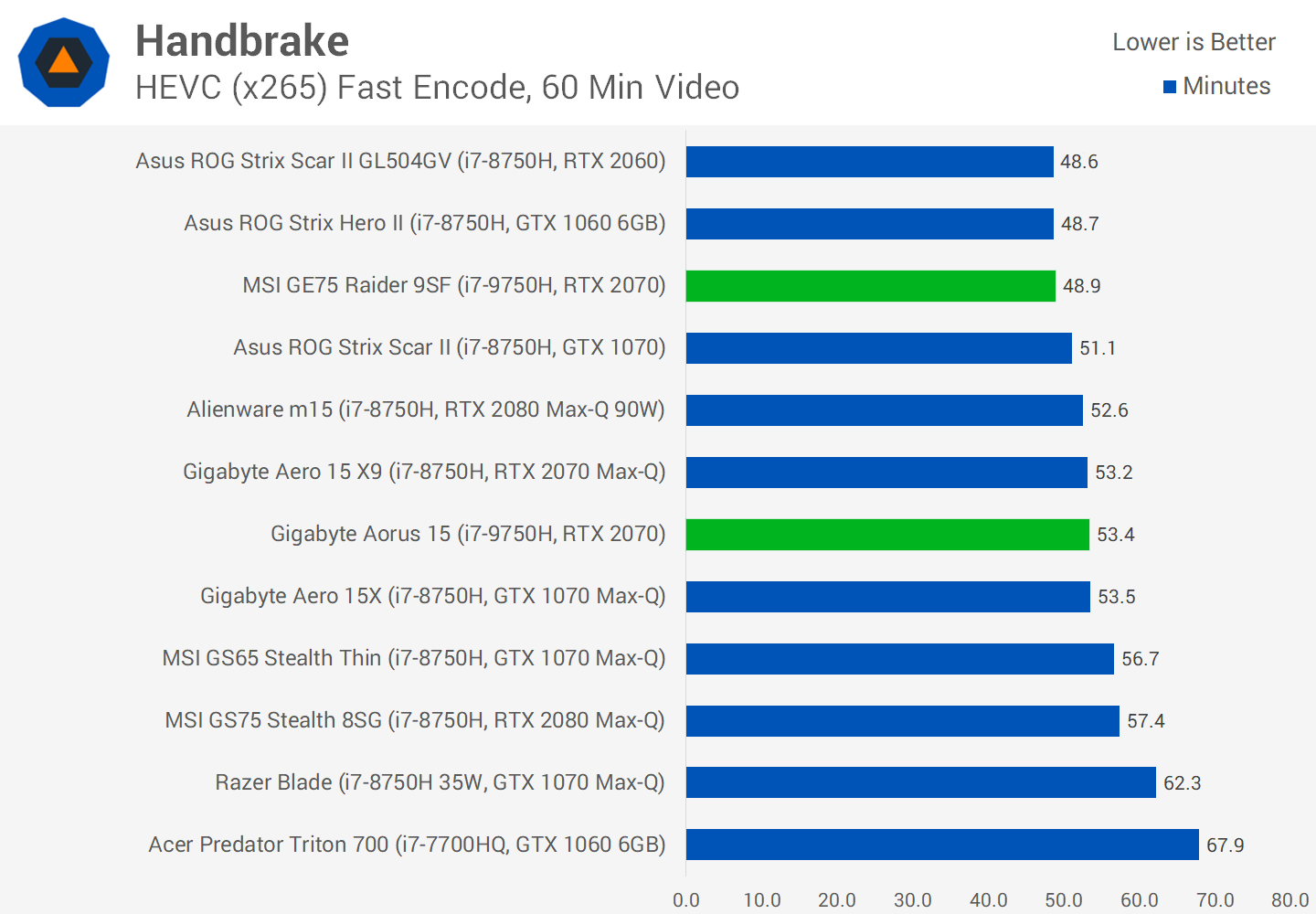
Handbrake is comparable. This is a protracted check that falls nearly entirely beneath the PL1 limit and once more, whilst the MSI model plays properly, it’s no longer the outright fastest system and receives overwhelmed with the aid of two Asus models. The Aorus 15 is no faster than Gigabyte’s Aero 15 X9.

Our Premiere benchmark with Lumetri outcomes, at the same time as it does make use of the GPU extremely, becomes CPU limited once you are running a GTX 1060 or so. So over again we’re in a scenario in which the MSI version is not the fastest however plays well, whilst the Gigabyte model isn't any distinctive to most Core i7-8750H laptops.
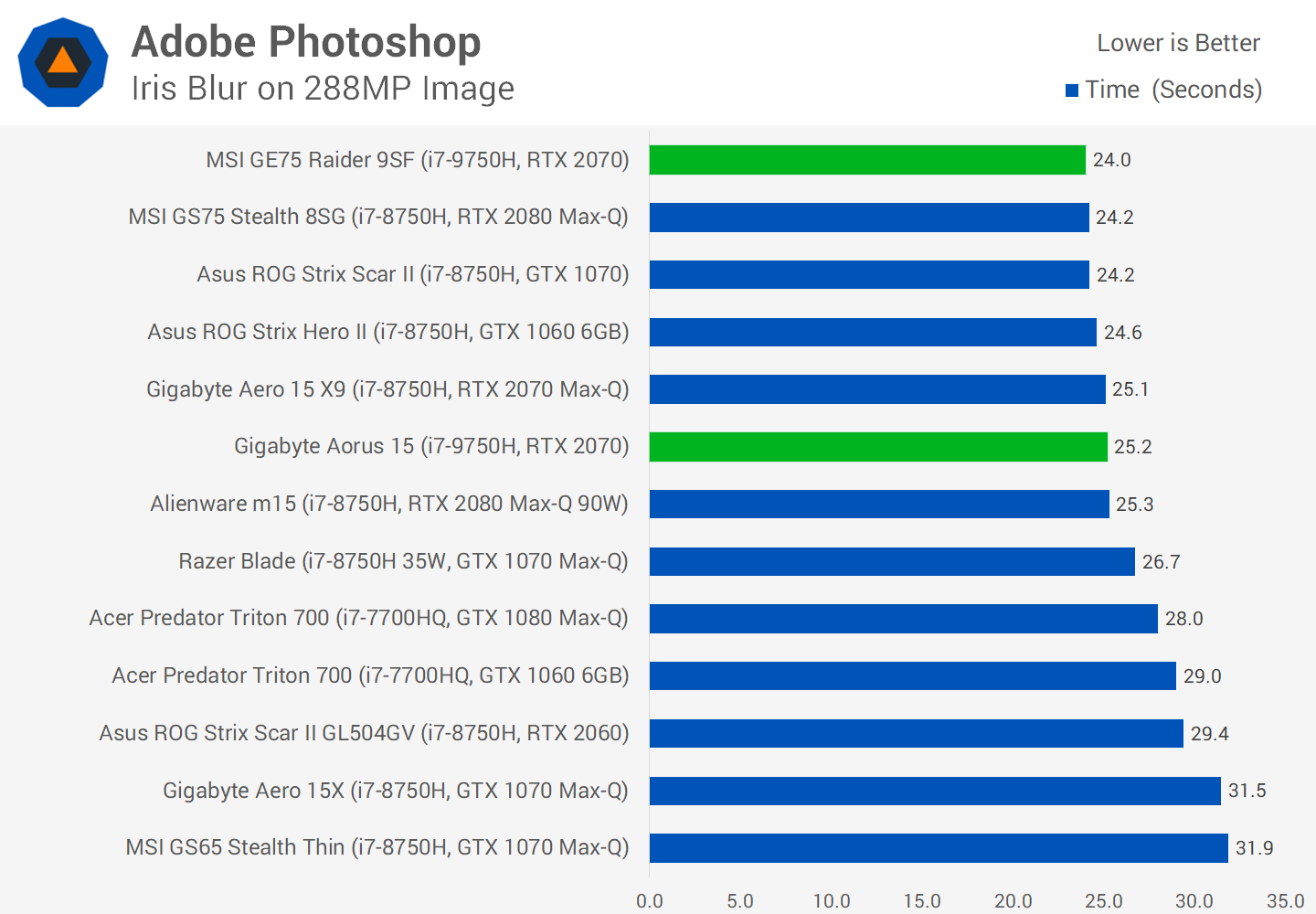
You’ve likely seen a chart like this the previous few times: Adobe Photoshop with the CPU-confined Iris Blur effect is a great displaying for the 9750H but isn’t in the end quicker than the 8750H.
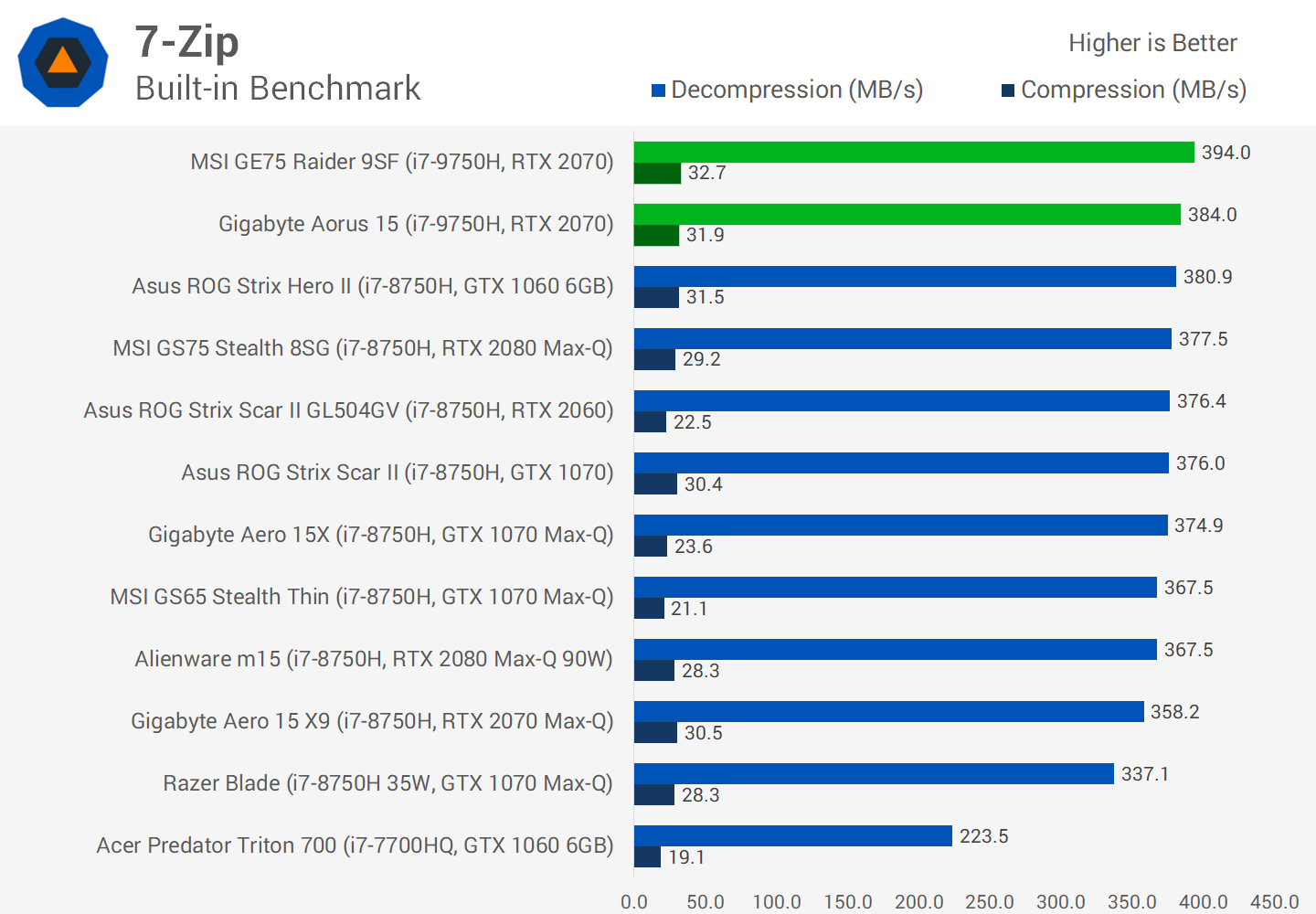
Finally we see something slightly special in 7-Zip. The two Core i7-9750H laptops sit down atop the charts, but most effective simply: the Gigabyte model is 1% quicker than the fastest 8750H laptop, even as the MSI model fares a touch better, slotting in 4% quicker. This will infrequently sway every body to a ninth-gen machine.
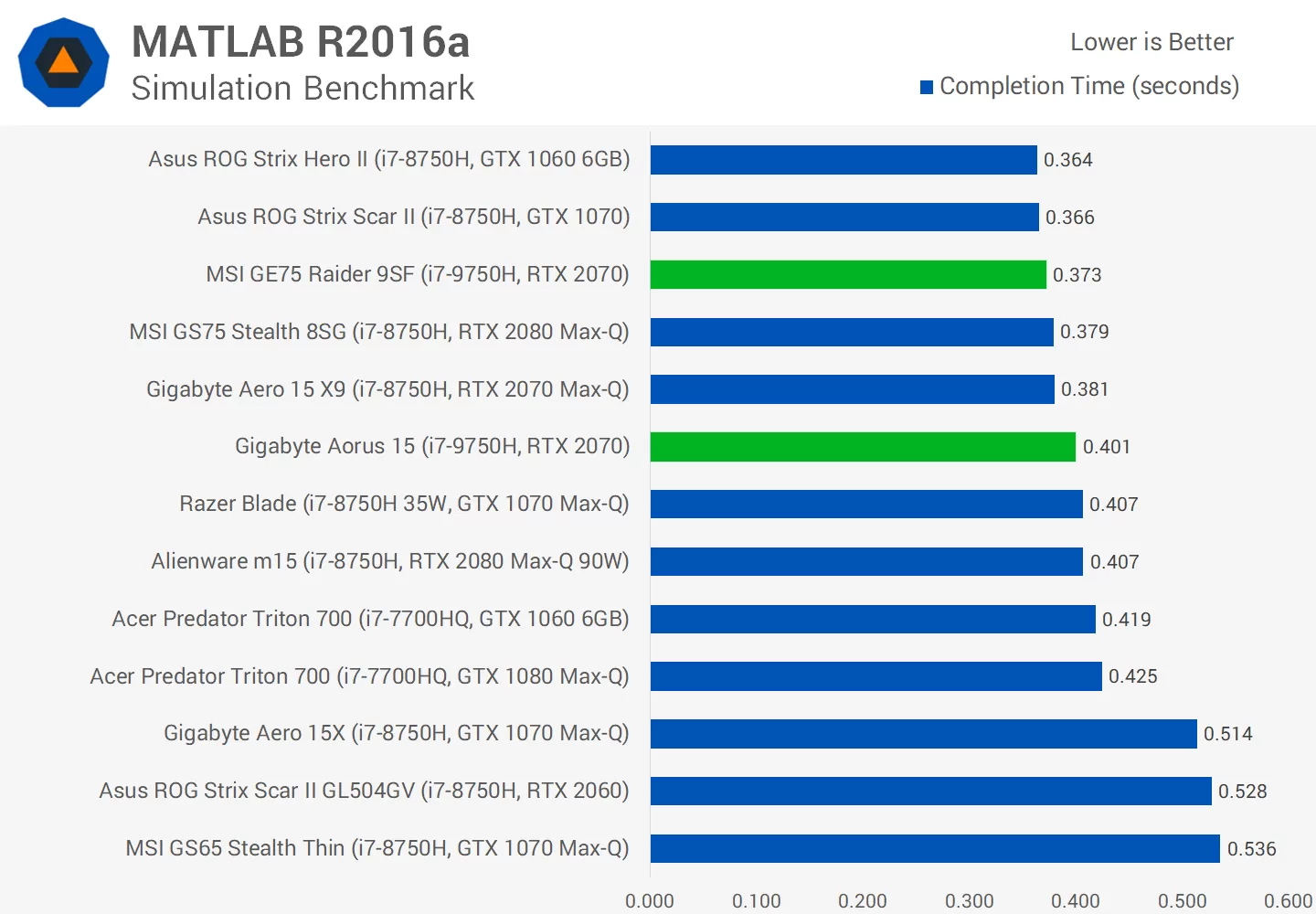
MATLAB doesn’t enjoy the Core i7-9750H over the Core i7-8750H. Same performance relying on which two systems you directly evaluate.
Performance Summary
Here are some very last charts to summarize this whole scenario nicely. Here we've the Gigabyte Aorus 15 with its Core i7-9750H pitted towards the average Core i7-8750H result. We’re seeing a tiny 2.eight percent performance advantage a Chip:verage, and that evaporates to a performance deficit while as compared to one of the quickest Core i7-8750H laptops we’ve examined (Asus Strix Scar II).
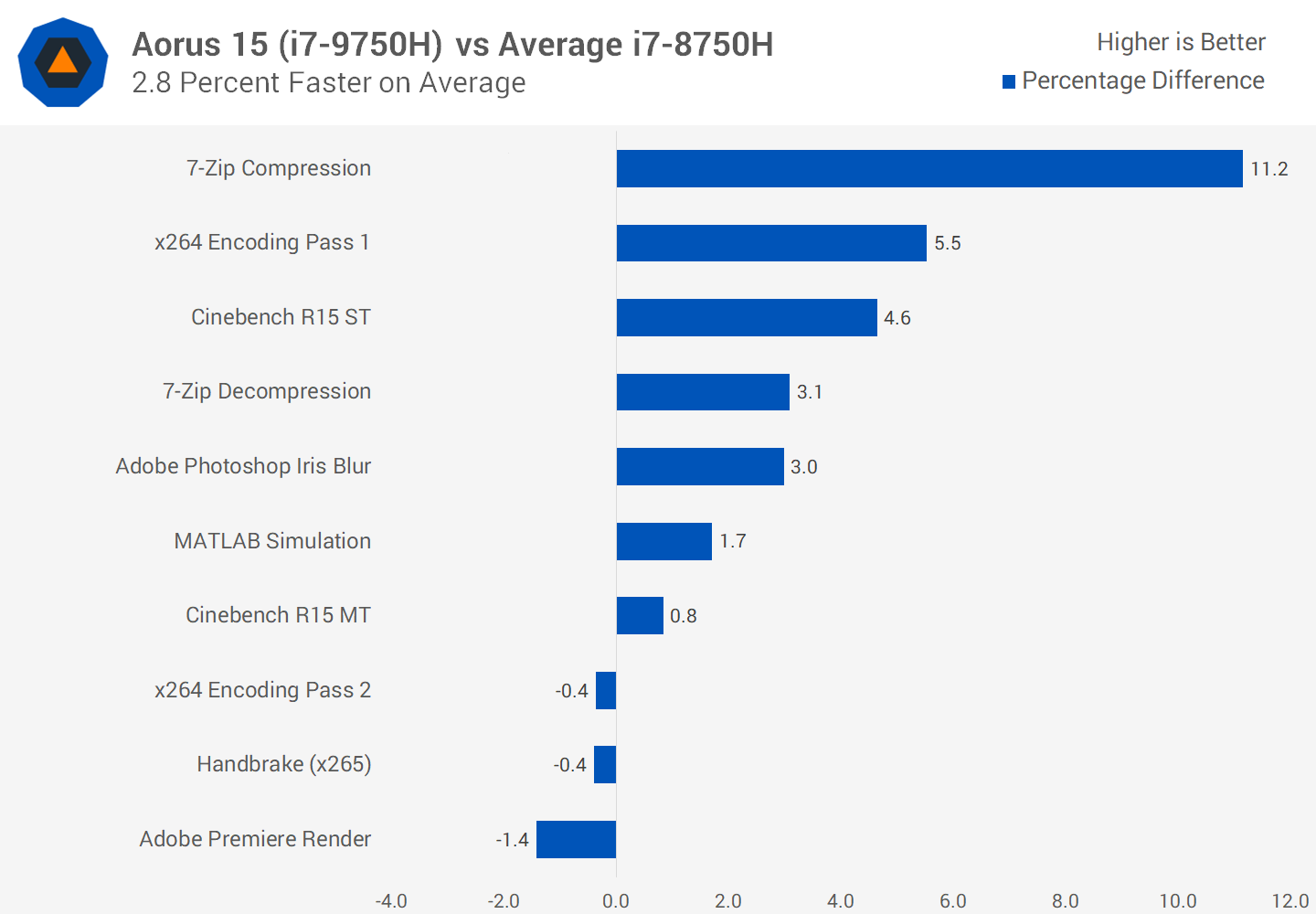
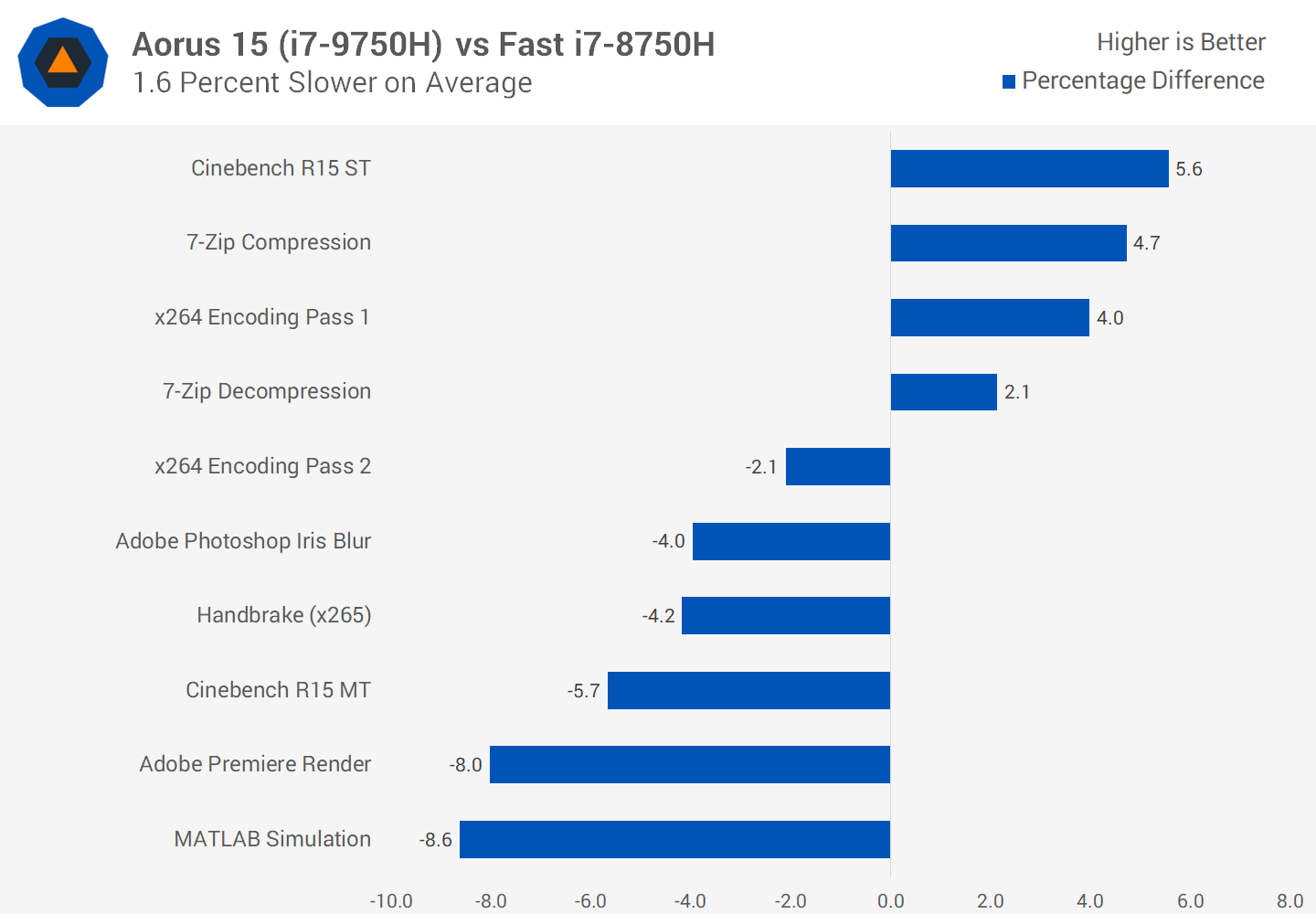
The effects are a touch extra favorable for the MSI version: 8 percent faster than the average Core i7-8750H pc is a strong end result and there are specifically excellent outcomes in Cinebench single-thread and seven-Zip compression. But compare that to a quick Core i7-8750H variation (will depend Chip: AMD pc's precise configuratiAMD Ryzennd cooling profile) and that margin is cut to simply 4 percent.
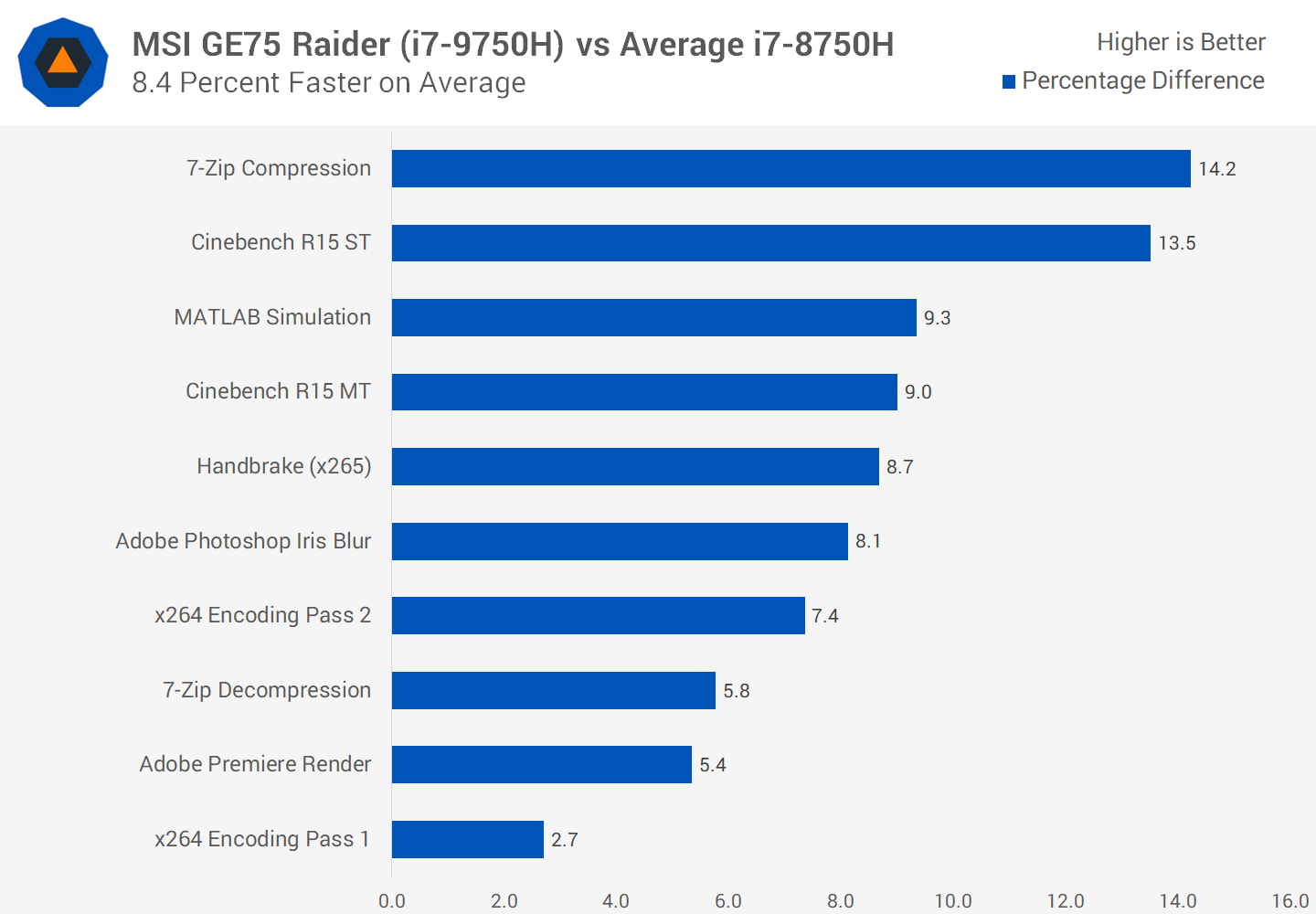
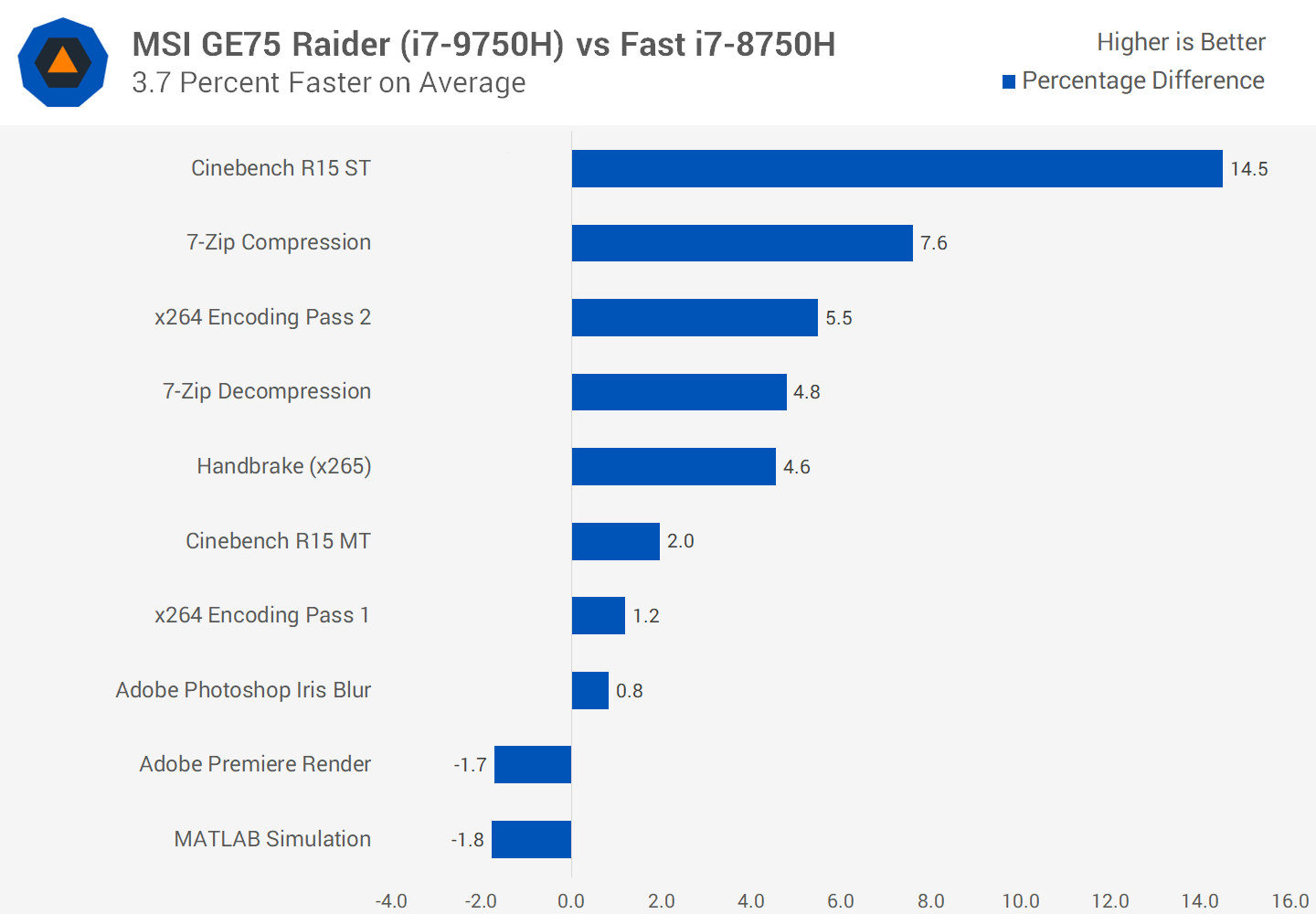
Wrap Up
Something we haven’t mentioned is how the 9750H stacks up in opposition to the quad-middle Core i7-7700HQ, a common upgrade route for lots shoppers coming from previous technology gaming laptops. As the Core i7-9750H is very just like the 8750H, we’re looking at up to 50% gains or better in a few workloads, with an average in this selection of 42 percentage.
For gaming, unfortunately we didn't have a 8750H computer also geared up with a RTX 2070 to make a right apples-to-apples comparison, however our affect so far is that like with the productiveness workloads, there haven’t been any development in performance whilst you are CPU restrained. CPU-heavy video games like Hitman 2 aren’t faster than anticipated and the 9750H doesn’t have incredibly higher clock behaviour than the 8750H in games. At first-class we count on a ~5% development relying at the laptop version, however there are many other variables at stake right here. Having, say, best unmarried-channel memory will make a larger effect than having the 8750H over the 9750H.
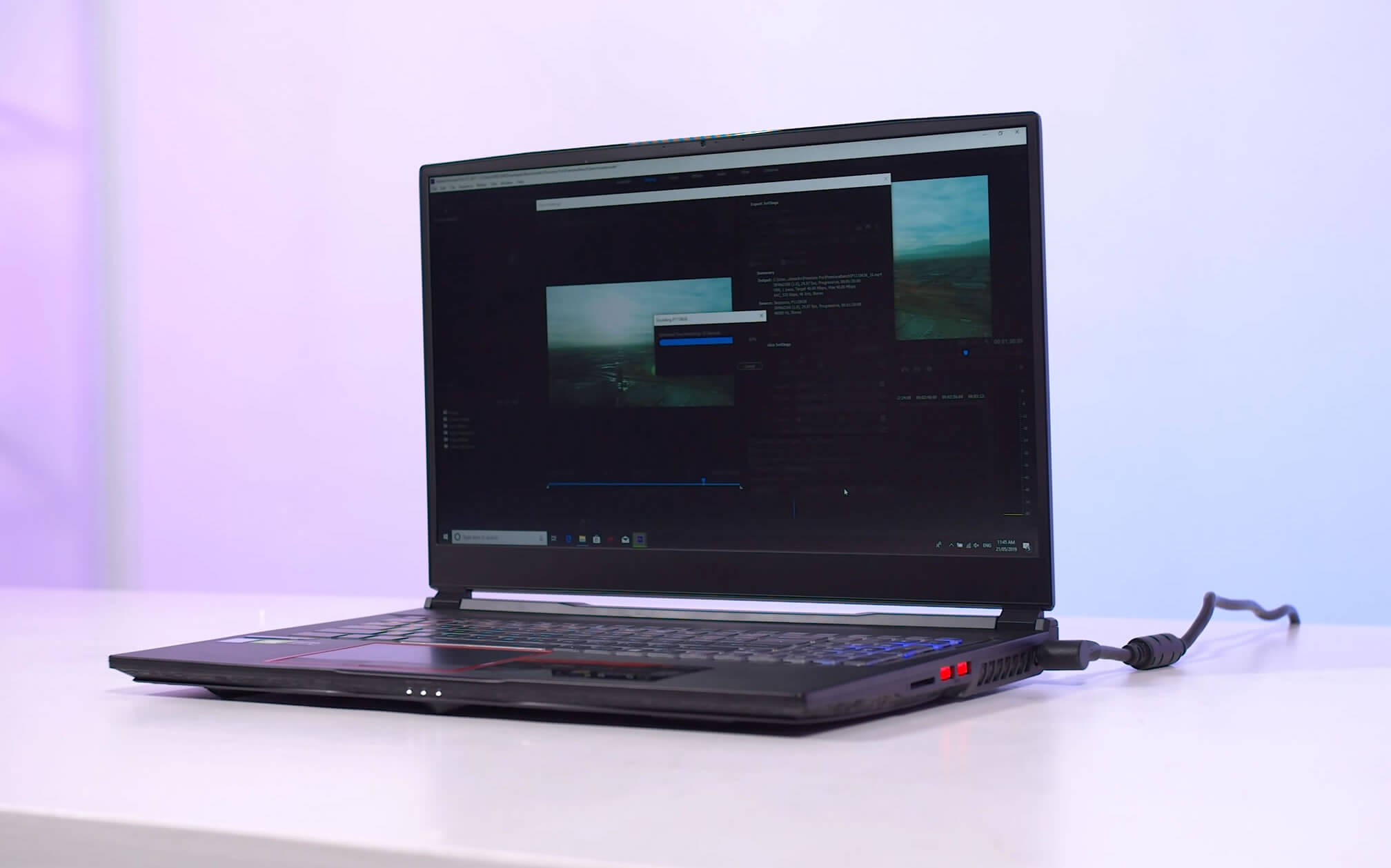
Looking on the spec sheet, we can't act amazed by using this final results. The foundations for the brand new Core i7-9750H are equal to the Core i7-8750H, but with Intel displaying up to 400 MHz will increase in base clocks and enhance clocks – which admittedly drop to as low as one hundred MHz while searching at the total clock desk – we were awaiting a bit extra. And we suppose a whole lot of buyers might be watching for more as properly, as a result the point of this evaluation. The truth is we didn't locate the Core i7-9750H to be definitively faster than the Core i7-8750H in actual international implementations. The two CPUs are about the identical, and at fine the 9750H is slightly faster if you get a positive in shape-up between laptops. But it might also be slightly slower, as evidenced by our benchmarks.

Bottom line, there’s no longer a lot difference between the 8750H and 9750H. So if an 8750H system with otherwise same specifications is cheaper than a new 9750H gadget, you should select the previous-gen model. You may want to argue it’s a piece of a pointless product and we would were nice continuing on with the identical overall performance from the trusty old 8750H.
But that doesn't make it a bad product. If you find a Core i7-9750H pc at an excellent price it ought to be as precise as the typical 8750H device and could truely provide a big overall performance leap over seventh-gen laptops or older. But it’s now not something you’d upgrade to from an 8th-gen Core i7 and also you certainly shouldn’t accept as true with it’s quicker simply primarily based at the spec sheet. At least with the manner OEMs put in force those processors nowadays.
- Intel Core i7-9750H laptops on Amazon
- Gigabyte Aorus 15 on Amazon
- MSI GE75 Raider on Amazon
- Intel Core i7-8750H laptops on Amazon
0 Response to "Intel Core i7-9750H vs i7-8750H Review"
Post a Comment